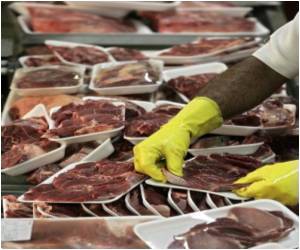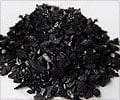Reducing the intake of red meat consumption not only slashes the risk of chronic diseases but also shrinks carbon footprint by 28 million tonnes, states study published in BMJ.

Even when imported foods are taken out of the equation, the government's 2050 target for an 80% cut in the UK's carbon footprint will be "unattainable" without a substantial reduction in greenhouse gas emissions from livestock farming, say the authors, citing the Committee on Climate Change.
Previously published evidence shows that the risks of coronary heart disease, type 2 diabetes, and bowel cancer rise by 42%, 19%, and 18% respectively, with every additional 50 g of red and processed meat eaten daily.
The authors used responses to the 2000-2001 British National Diet and Nutrition Survey to estimate red and processed meat intake across the UK population and published data from life cycle analyses to quantify average greenhouse gas emissions for 45 different food categories.
They then devised a feasible "counterfactual" alternative, based on a doubling of the proportion of survey respondents who said they were vegetarian—to 4.7% of men and 12.3% of women—and the remainder adopting the same diet as those in the bottom fifth of red and processed meat consumption.
Those in the top fifth of consumption ate 2.5 times as much as those in the bottom fifth, the survey responses showed.
Advertisement
The calculations showed that this would significantly cut the risk of coronary artery disease, diabetes, and bowel cancer by between 3 and 12 per cent across the population as a whole.
Advertisement
Furthermore, the expected reduction in greenhouse gas emissions would amount to 0.45 tonnes per person per year, or just short of 28 million tonnes of the equivalent of CO2 a year.
The authors acknowledge that their data are a decade old, but the most recent nutrition survey (2008/9) indicates broadly similar and even slightly higher figures for red and processed meat consumption.
"This indicates that our estimates remain relevant and may even be conservative, highlighting the need for action to prevent further increases in intake in the UK population," they suggest.
And while it may be harder for people to understand the direct impact that climate change has on them, it is much easier to understand the impact on their health, they say.
"Health benefits provide near term rewards to individuals for climate friendly changes and may thus 'nudge' humanity towards a sustainable future," suggest the authors. "Dietary recommendations should no longer be based on direct health effects alone."
Source-Eurekalert














